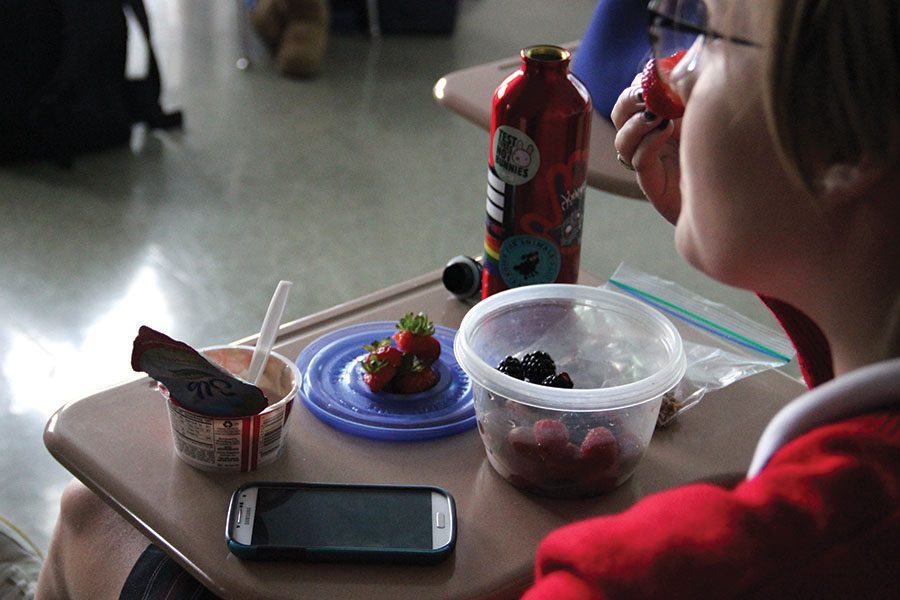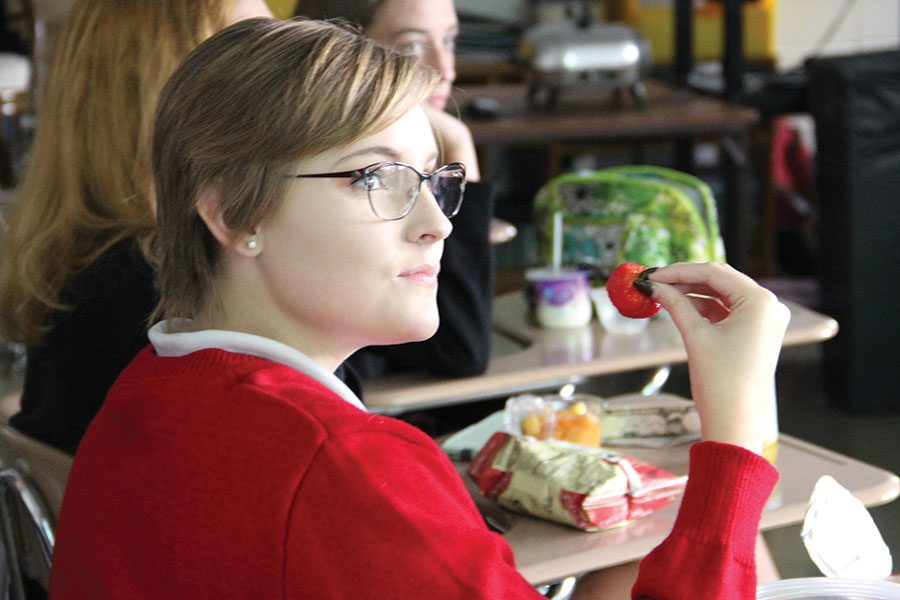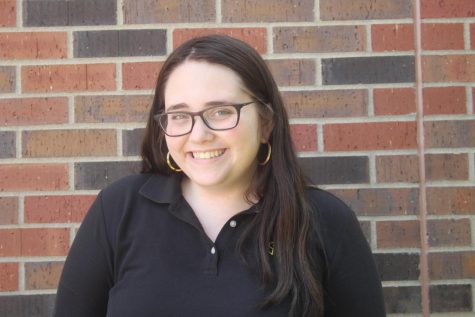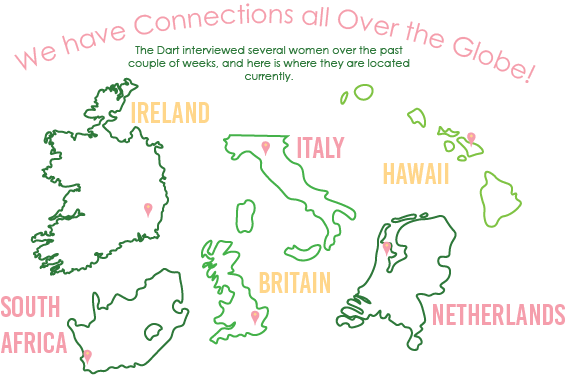What fuels us: Dietary communities prominent at STA
Students throughout campus have formed their own communities surrounding their diets.
Senior Lizy Hagan briefly discusses her vegan diet to other girls in Herbivore Club Oct. 12. Hagan’s lunch consisted of yogurt made from soy milk and various berries, which all meet criteria for being vegan. photo by Anna Louise Sih
November 10, 2016
story by Katie Gregory
Senior Lizy Hagan looks out across the sea of students gathered in G016 to learn more about vegetarian-based diets. Students from all grade levels have gathered in the room for a meeting of the Herbivore Club, a STA organization that educates and provides a community for students who are vegetarian or vegan. For years, students have been following vegan, vegetarian and gluten-free diets, among others. Only recently, however, have these diets manifested into organizations like Herbivore Club.
Founded by seniors Lizy Hagan and Lily Levi, Herbivore Club is made up of STA students who subscribe to vegetarian and vegan lifestyles. These two diets have been getting more and more coverage, as vegans from around the world take to social media to bring light to the conditions animals are kept in. One point of contention is that of the dairy industry. According to One Green Planet, nearly 75 percent of the world’s animal agricultural practices utilize artificial insemination, a practice that forcibly impregnates female cows.
Herbivore Club works to bring issues like these to light for its members. The club is new this year and has met only a few times. According to Hagan, the motivation to found this club comes from personal experience.
“The reason we created [Herbivore Club] was to have a group of girls where we could talk about this stuff and educate everyone…especially if some girls are trying to transition to veganism,” Hagan said. “I was all alone when I was transitioning and I wish I would’ve had someone there to encourage me. I wanted to give that to other girls.”
photos by Anna Louise Sih
Hagan says she “100 percent” feels a sense of community with other vegans, but some students who follow other diets don’t feel that there is much community amongst them. Sophomore Liz Elm is lactose intolerant and feels that her eating patterns don’t come with much of a social circle.
“I don’t really think I have a sense of community with other STA students who follow a lactose free diet,” Elm said. “I think of my lactose intolerance as a whole separate thing. I definitely don’t think I’m handicapped by it or anything, it’s just another thing that I have to deal with. If I find out someone else is lactose intolerant, it’s a nice talking point but not much else.”
Sophomore Helena Berger agrees that she doesn’t feel much of a community with her vegetarian diet. She is in Herbivore Club but says “I haven’t been to many meetings. The [vegetarian and vegan] communities are okay, but I still feel pressure. I’m slowly starting to feel like it’s a label.”
One issue that seems to be facing multiple students with specialized diets is getting a suitable lunch for their diet at school. Multiple students agreed that Bistro Kids does not do enough to accommodate for their diets.
“I’ve actually noticed that almost every other day there’s something for lunch with cheese in it,” Elm said. “Today, for example, there’s French Dip, and there’s cheese on the French Dip and they don’t offer it without. Obviously, I could take off the cheese, but I think it would be nice to have a certain number of items without cheese for the lactose intolerant students, like me.”
Other students, however, disagree. Sophomore Helena Berger follows a vegetarian diet and feels that Bistro Kids does a good job of providing for her. “I’ve opened up this year and tried more vegetarian foods that they make,” she says “They’re really good.”
Regarding specialized diets, Chef Scott Brake feels that in order to provide for these students, there needs to be a collaborative effort between the students and himself.
“If people communicate with me, I can have everything ready,” Brake said. We do our best to accommodate everyone. Sometimes that’s possible and sometimes it’s not. Communication is the main key.”
At the end of the day, he says, everyone’s body operates differently, and your diet is an important part of that.
“You might not have Celiac disease, but your body still may not process gluten very well,” Brake said. “If you can find a diet that helps you feel well and operate effectively, that’s a very good thing.”










